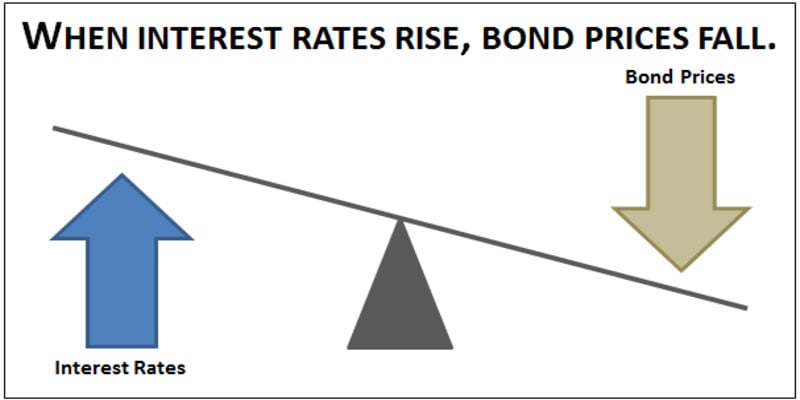Advertisement
Advertisement
Deciphering Hedge Funds: Balancing Returns and Fees
Feb 15, 2025 By Kelly Walker
The world of hedge funds has long held a reputation for offering the tantalizing promise of superior returns, presenting itself as an avenue for investors to outperform traditional investment options. Yet, a persistent and polarizing debate surrounds whether hedge funds genuinely deliver on these returns, or if they are primarily defined by the significant fees they charge. In this exploration, we delve into the enigmatic realm of hedge funds, seeking to unravel the factors contributing to their potential for elevated returns while simultaneously examining the criticism surrounding the substantial fees that often accompany these investment vehicles.
Historical Performance of Hedge Funds
In assessing the historical performance of hedge funds, it is imperative to examine past returns, comparing them through a comparative analysis with traditional investments such as stocks and bonds. Furthermore, understanding the role of market conditions in influencing their performance is essential, as it sheds light on how hedge fund strategies adapt to various economic and financial environments, ultimately shaping their track record.
The Fee Structure of Hedge Funds

Analyzing the fee structure of hedge funds involves three critical aspects. Firstly, understanding hedge fund fees is essential, as it sets the stage for evaluating their cost-effectiveness. Secondly, dissecting the fee components, which primarily consist of management fees and performance fees, provides clarity on how these expenses are structured. Lastly, recognizing the profound impact of these fees on investor returns highlights the importance of fee considerations in hedge fund investments.
Factors Influencing Hedge Fund Performance
Numerous factors exert influence on hedge fund performance. Firstly, hedge fund strategies, spanning long/short equity, global macro, and event-driven approaches, dictate their investment tactics and risk profiles. Secondly, the ongoing debate surrounding skill versus luck in hedge fund success highlights the intricacies of decision-making within these funds. Lastly, market volatility plays a pivotal role, with effective risk management strategies often determining the degree of success or failure for hedge funds in navigating turbulent financial landscapes.
Criticisms of Hedge Funds

Lack of transparency
Hedge funds are often criticized for their lack of transparency in disclosing their investment strategies, holdings, and performance data to the public. This lack of transparency can make it difficult for investors to fully understand the risks and potential rewards of investing in these funds.
Lack of regulation
Hedge funds typically operate with less regulatory oversight compared to other investment vehicles like mutual funds. Critics argue that this lack of regulation can lead to a higher risk of fraud, market manipulation, and other unethical practices within the industry.
High fees eroding returns
Hedge funds often charge high fees, including both management fees and performance fees (often referred to as "2 and 20," where the fund manager charges 2% of assets under management as a management fee and 20% of profits as a performance fee). These fees can significantly reduce the returns earned by investors, especially when the fund's performance is subpar.
Insider trading allegations
Some hedge funds and their employees have faced allegations of insider trading, where they are accused of trading on non-public information to gain an unfair advantage in the market. Insider trading is illegal and unethical, and any such allegations can damage the reputation of the hedge fund industry as a whole.
Case Studies
Notable hedge fund successes
- Renaissance Technologies: Known for its quantitative strategies and impressive returns.
- Soros Fund Management: George Soros's billion-dollar profit from shorting the British pound in 1992.
- Paulson & Co: Profited significantly by fighting against the U.S. housing market during the 2008 financial crisis.
Hedge fund failures and blow-ups
- Long-Term Capital Management (LTCM): Required a bailout in 1998 due to risky trading.
- Amaranth Advisors: Collapsed in 2006 due to massive natural gas trading losses.
- Pirate Capital: Closed in 2007 due to losses and investor redemptions.
High-profile controversies and scandals
- Galleon Group: Involved in a major 2009 insider trading scandal, leading to convictions.
- Madoff Investment Scandal: One of the largest Ponzi schemes in history, uncovered in 2008.
- SAC Capital Advisors: Faced legal troubles related to insider trading and transformed into Point72 Asset Management.
Alternatives to Hedge Funds
There are several alternatives to hedge funds in the investment landscape. Passive investing options, such as index funds and exchange-traded funds (ETFs), offer diversified exposure to various asset classes at a lower cost. Mutual funds, which involve active management by fund managers, provide another investment avenue for those seeking professional portfolio management. Additionally, investors looking for longer-term and often illiquid investments may consider private equity and venture capital, which involve investing in private companies with growth potential. These alternatives cater to different risk profiles and investment objectives, offering a range of choices beyond traditional hedge funds.
Evaluating the Role of Hedge Funds in a Portfolio
Evaluating the role of hedge funds in a portfolio necessitates a holistic approach. First, consider diversification benefits as hedge funds can potentially reduce overall portfolio risk by offering uncorrelated returns to traditional asset classes. Second, assess risk tolerance and investment goals, as hedge funds can be tailored to various risk profiles and objectives, but their complex strategies may not align with all investors. Third, determine the investment horizon, as hedge funds' effectiveness may vary for long-term wealth preservation versus short-term speculation. Tailoring the inclusion of hedge funds to these factors can help investors make informed decisions about their portfolio allocations.
Conclusion
The debate surrounding hedge funds, whether they provide higher returns or primarily entail high fees, remains multifaceted. While some hedge funds have indeed achieved remarkable success, their complex strategies, limited transparency, and substantial fee structures pose challenges for investors. Ultimately, the decision to invest in hedge funds should be a well-informed one, considering individual risk tolerance, investment goals, and a clear understanding of the potential benefits and drawbacks associated with these enigmatic financial instruments. Balancing the pursuit of returns with a critical assessment of fees is crucial in navigating the world of hedge fund investments.
On this page
Historical Performance of Hedge Funds The Fee Structure of Hedge Funds Factors Influencing Hedge Fund Performance Criticisms of Hedge Funds Lack of transparency Lack of regulation High fees eroding returns Insider trading allegations Case Studies Notable hedge fund successes Hedge fund failures and blow-ups High-profile controversies and scandals Alternatives to Hedge Funds Evaluating the Role of Hedge Funds in a Portfolio Conclusion
Frac Sand Scarcity: Meeting the Growing Demand

Difference between Fixed and Variable Deposit Interest Rates

10 Best Landlord Insurance Companies

How to Calculate the Return on Investment (ROI) of a Marketing Campaign

Stock Exchange Owners: A Closer Look at the Players

All about Financial Statements Explained

I Make $100k a Year: How Much Rent Can I Afford?

The Inverse Connection Between Interest Rates And Bond Prices



